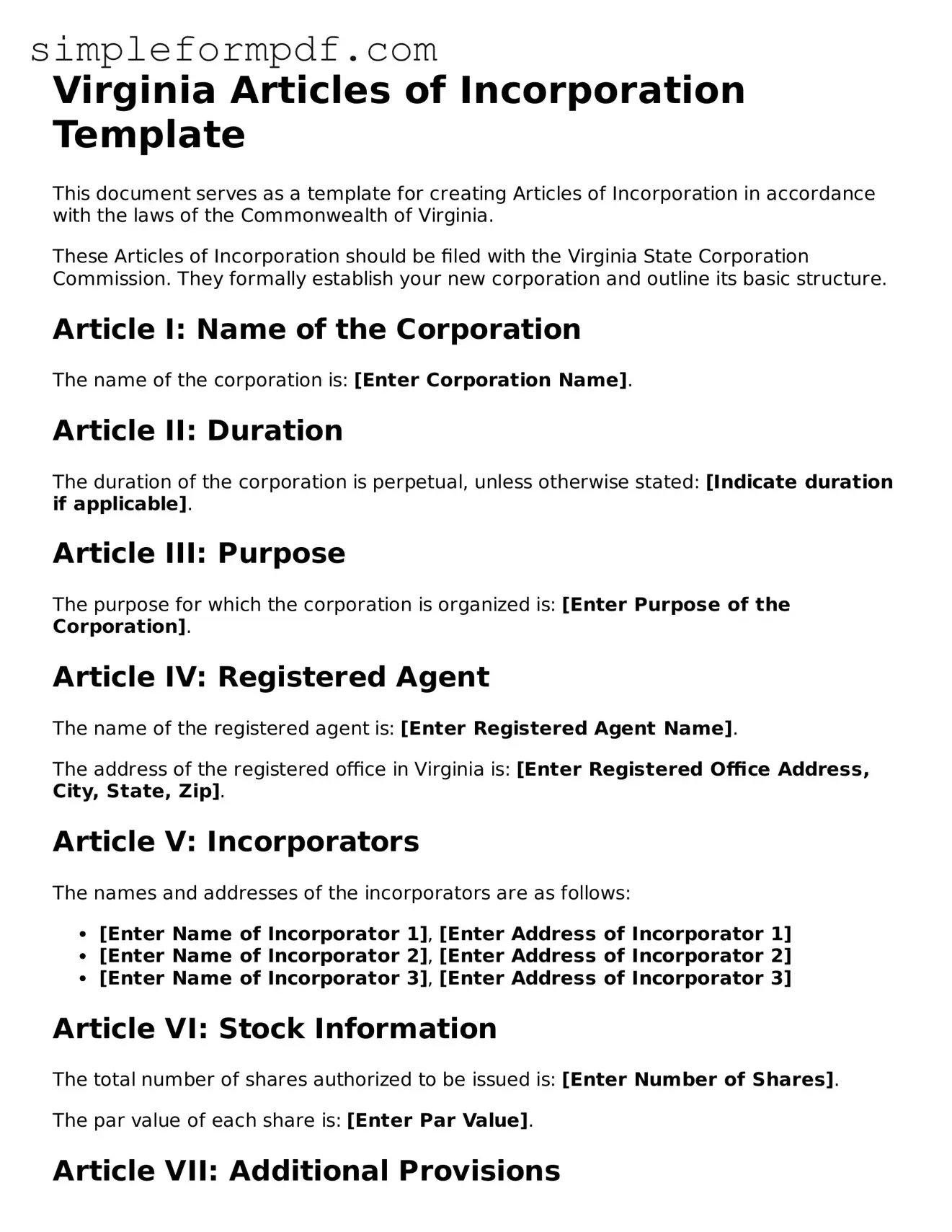Virginia Articles of Incorporation Template
This document serves as a template for creating Articles of Incorporation in accordance with the laws of the Commonwealth of Virginia.
These Articles of Incorporation should be filed with the Virginia State Corporation Commission. They formally establish your new corporation and outline its basic structure.
Article I: Name of the Corporation
The name of the corporation is: [Enter Corporation Name].
Article II: Duration
The duration of the corporation is perpetual, unless otherwise stated: [Indicate duration if applicable].
Article III: Purpose
The purpose for which the corporation is organized is: [Enter Purpose of the Corporation].
Article IV: Registered Agent
The name of the registered agent is: [Enter Registered Agent Name].
The address of the registered office in Virginia is: [Enter Registered Office Address, City, State, Zip].
Article V: Incorporators
The names and addresses of the incorporators are as follows:
- [Enter Name of Incorporator 1], [Enter Address of Incorporator 1]
- [Enter Name of Incorporator 2], [Enter Address of Incorporator 2]
- [Enter Name of Incorporator 3], [Enter Address of Incorporator 3]
Article VI: Stock Information
The total number of shares authorized to be issued is: [Enter Number of Shares].
The par value of each share is: [Enter Par Value].
Article VII: Additional Provisions
The corporation may include additional provisions as determined by the board of directors, including: [Enter any additional provisions or leave blank].
Article VIII: Limitation of Liability
No director or officer of the corporation shall be personally liable for monetary damages to the corporation or its shareholders, except for:
- Acts or omissions that involve intentional misconduct or a knowing violation of law.
- Conduct violating § 13.1-692.1 of the Code of Virginia.
- Any transaction from which the director derived an improper personal benefit.
Signatures
Incorporators must sign below:
____________________________________ (Signature of Incorporator 1)
____________________________________ (Signature of Incorporator 2)
____________________________________ (Signature of Incorporator 3)
Date of Incorporation
Date: [Enter Date].
Ensure all information is accurate and complete before submission. Once finalized, this document can be filed with the Virginia State Corporation Commission to legally establish your corporation.

